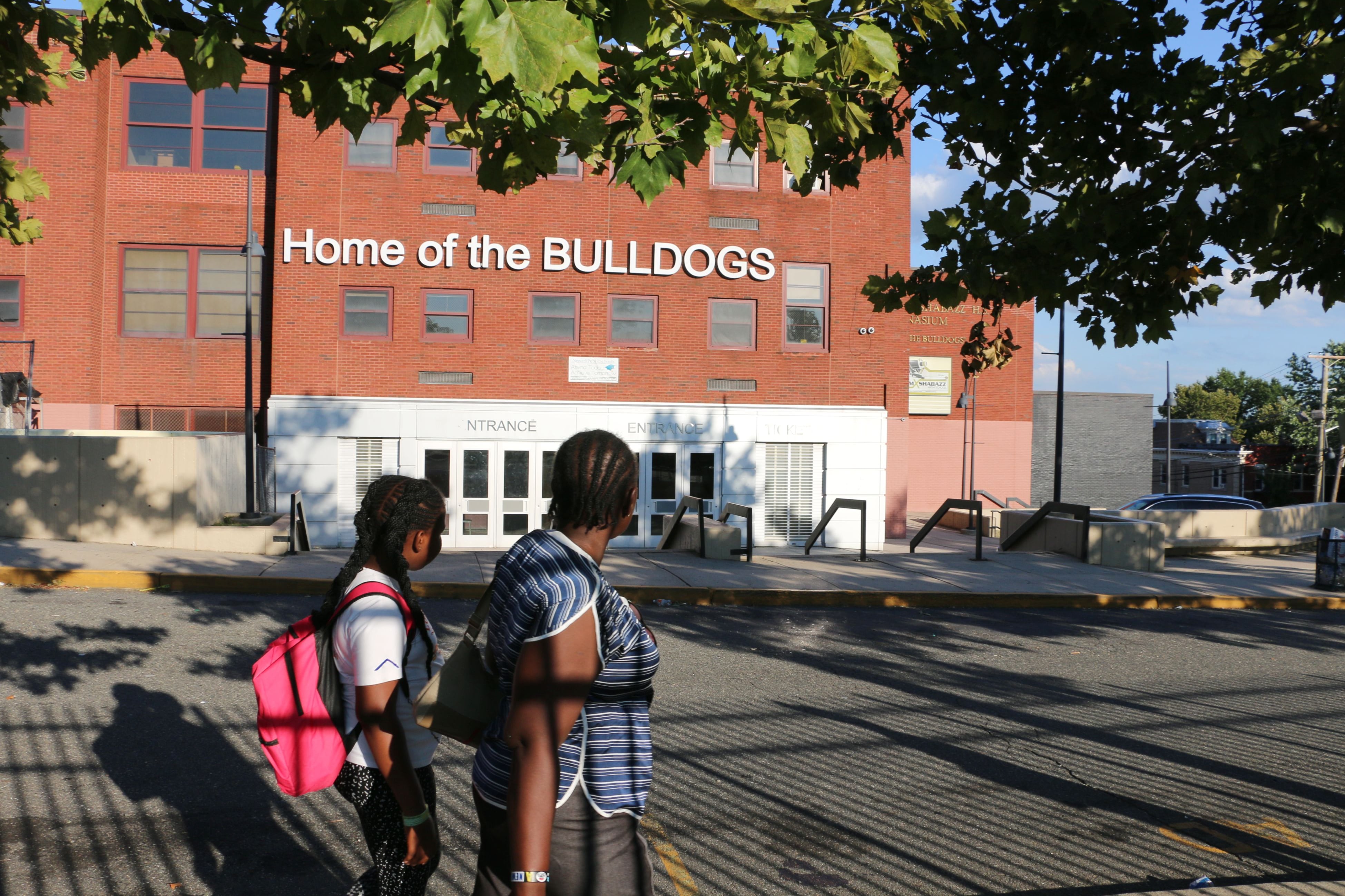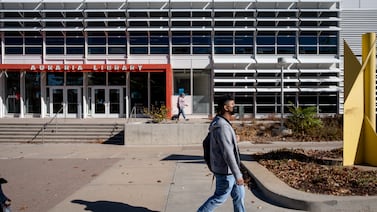Sign up for Chalkbeat Newark’s free newsletter to keep up with the city’s public school system.
A new bilingual education program will launch in the South Ward this fall to help Newark’s growing population of English language learners access services closer to where they live.
High school students learning English as a second language will be eligible to enroll in the new program next school year at Malcolm X Shabazz High School, where concerns over declining enrollment, student performance, and safety challenges have remained in recent years. The program will start with ninth and 10th graders and then add one grade per year.
The new program comes as the district’s enrollment grows amid the latest influx of immigrants to New Jersey. It also comes almost three years after the district agreed to overhaul services for English language learners as part of a settlement following a years long investigation by federal officials.
More than 10,000 students – a quarter of the city’s public school enrollment – are English language learners, district officials said.
The new program at Shabazz will offer South Ward high school students learning English the option to receive services near home, according to Superintendent Roger León, who announced the new program at a recent school board meeting.
“There are students that live in the South Ward that take two or three buses to get to Eastside or Barringer High School because they’re in a bilingual Spanish program,” León said.
Currently, South Ward high schools offer no programs for English language learners, León said.
The program previously existed at Shabazz but was removed under state control of the district, according to district spokeswoman Nancy Deering. Since León was appointed to the board in 2018, when local control was reinstated, the district has added an engineering academy, cosmetology program, and an aviation program to the school as part of the district’s high school redesign strategy.
Last school year, 272 students attended Shabazz and less than 2% were English language learners, according to 2022-23 state data.
The district’s English learners include a mix of students born in the country and abroad. Most speak Spanish or Portuguese, although some speak Arabic, French, Haitian Creole, or other languages.
With the influx of second-language learners in the district, officials are also wrestling with a shortage of bilingual teachers who can communicate in different languages.
During a January school board meeting, board member Vereliz Santana said the new program at Shabazz would alleviate some of the staffing pressures at Eastside and Barringer high schools. Barringer has “the highest number of bilingual and ESL vacancies,” she said.
“It’s a student population that we’re committed to serving and to educate and we’re rising to the challenge,” Santana said.
In 2017, the U.S. Department of Justice launched a nearly four-year investigation that found “wide-ranging failures” in the district’s English language program, officials said. The department’s civil rights division launched the investigation when the state still operated the Newark school system and in response to a complaint that the district was failing to properly serve English learners.
As part of a settlement agreement with federal officials, Newark agreed to overhaul how it serves English learners, but León has shared few details about plans to expand bilingual education districtwide.
In 2022, the Newark school board approved a 15-page resolution that restated the district’s responsibilities to meet the needs of students learning English as mandated by state and federal laws, such as screening students to identify English learners and providing teachers of English learners with relevant professional development opportunities.
Teachers and students are also grappling with the challenges of having English language learners in classrooms where there’s little support.
Sani Scott, a junior at Central High School, during the board meeting in January, said it’s tough to communicate with her bilingual classmates in her history class, and teachers are often stuck translating lessons and notes for students – “a process that takes up to at least 10 minutes of class time.”
Bilingual students “don’t get the proper education they deserve because they’re so busy trying to translate everything just to keep up with us,” Scott said. “That keeps them isolated and makes their social groups very small because of the language barrier.”
Yvette Jordan, chair of the Newark Education Workers Caucus, said at January’s board meeting that teachers aren’t getting enough support to help bilingual students. Teachers have to use their prep time to translate materials, which puts a strain on their time to plan lessons, Jordan said.
She read a statement from one of her Latina students who feels insecure because her classmates don’t understand her: “I don’t know if they are making fun of us, because they don’t understand me or my friends, and I feel bad.”
Jessie Gómez is a reporter for Chalkbeat Newark, covering public education in the city. Contact Jessie at jgomez@chalkbeat.org.






